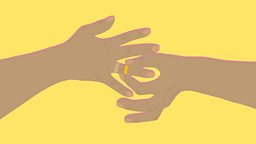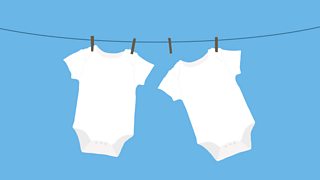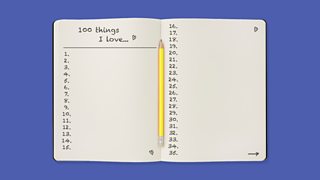Life After Divorce: Four people share their experiences
More than 40% of marriages end in divorce, according to the Office for National Statistics – and most of us will have been affected by one - whether it be our own, our parents’ or our children’s. Yet we don’t speak easily about the process or the fallout.
Our reporter Henrietta Harrison has recently been through a divorce. She looked back and realised she wasn't really prepared and didn't have any idea what was ahead of her. In a new series on ±«Óãtv Radio 4’s Woman’s Hour, Life After Divorce, she shared some of her own experiences and spoke to listeners at different stages of the process to learn more. Their names have been changed.

Amanda split from her husband 12 years ago when he came out as gay.
“I was dedicated and committed to my marriage,” says Amanda. “It was for life for me. And we got on great, but obviously I knew deep down it wasn’t right. We didn’t have an intimate side really, apart from having two kids.
“I remember I asked him outright if he was gay, so I must have had suspicions. And he went ballistic with me: How dare I question his sexuality. So, I thought I'd better put that to one side. But I thought: ‘Yeah, I knew.’”
Amanda had been the first in her family to get a mortgage. But after the split, she didn't qualify for a mortgage on her own and had to move into a rental.
“For a lot of women, it's the money side that changes everything. I'm not saying you don't feel the abandonment, the hurt, the rejection, the grief of losing your marriage. But it's got to be a lot easier knowing that you've got that financial comfort.
“We’ve always had enough, but we haven’t lived an extravagant life. My car is really old. I don't really go out much. I got to charity shops. I shop on eBay. So, I've been able to pay my bills and go shopping every week, and to me that's been enough.
“I couldn't have done any more. I gave that man my everything. And as hard as it was, I wouldn't have my two children if I hadn’t married. So, for them alone, I'm truly grateful. I don't feel guilty. I think regret’s a waste of time completely. I think comparison is the thief of joy. That's my mindset... most of the time.
“Brace yourself because this is going to be hard. If I’d have known when I was 39 what I would have to go through, I would have thought: ‘I can't do it.’ But you take one day at a time. If today is absolutely horrendous, tomorrow's a new day.”

Amina moved out of the family home in 2020 after a three-year divorce process. When the toxicity of a broken marriage started to spill out and affect the children, it was over.
“It hadn't been good for a long time, but I was in it for the kids, to make sure that the kids had a stable life and that they were happy,” says Amina. “But it was clear that life at home was getting very difficult for the kids.
“The silliest thing would trigger a big row. So, what was supposed to be happy, family day would turn into slamming doors and tears. It looked like we lived a happy, busy, bustling, blessing, privileged life. But the moment the front door was shut, it was really difficult being together.
“The straw that broke the camel's back was getting evidence that perhaps he had spent the night in a hotel with another woman. I suspected that sort of thing for a long time, but suddenly having that there, I thought: ‘How many more signs do I need that this isn't right anymore?’ In that moment, I was done.
“My ex was a very charming man and he cultivated relationships with my parents. He was very much a member of their family. I would say we were loved equally. So, it had been difficult for me to let onto them quite how difficult he was with me.
“I look forward to the weekends now. That chaos that I had been dealing with and that fear that if they're not here, where are they? Who are they with? What are they doing? I'm completely free of that which means I can smell the roses.
“If someone hears my story and thinks: ‘That sounds like what I'm going through.’ I hope they realise that you don't have to put up with it. You've been in training for this, because you've been suffering and bearing and enduring for the longest time. This time, you're suffering and enduring and bearing for yourself and there is light at the end of the tunnel. You can be free of drama, of worry, of dread. It’s such an amazing thing. So, don't feel like there is no choice. There is always a choice.”

Ryan met his wife in his early twenties and married in 2015, but their relationship began to deteriorate after kids came along. They began the divorce process in November 2020.
“You change a lot in your 20s, don't you? We grew apart and neither of us were happy,” says Ryan. “There wasn't a lot of love there. I certainly wasn't rushing in the door after work and grabbing her.
“I think we were driving to get a coffee and it was something really trivial. I pulled the car over and said: ‘I just can't do it anymore.’ I remember sitting in the park and ride and we said ‘Neither of us are happy. It's probably time that we parted ways.’ It wasn't really dramatic.”
After his ex moved out, he stayed in the family home for three months before he moved to a two-bed flat in a village in the East of England.
“That was a really lonely time,” says Ryan. “You rattle around this big house, and you do go down that dark, lonely road. It was better when I moved to a new place. At the end of the day, it’s your battle in your head and you do have to deal with that on your own. It just takes time.
“She said: ‘My dad's going to help me move.’ When I got back, the house was literally stripped. Even things like little ones’ passports and birth certificates had gone, which I didn't really think about at the time. But I also need them and have a right to them. We didn't even discuss that; they were just taken. I think it's still that old stigma that the mother has more rights. And as a dad, you are on the backfoot still.
“We parented 50:50. But she had moved the children about 45 miles away, so I was getting up, driving them to school, then driving another 50 miles to work, then driving 50 miles back to get them. It wasn't fair on the kids. I did that for three months because I didn’t want to give up. I'm so glad I didn't. It nearly killed me, but I'm so glad I stuck it out.
“I can see why men walk away and give up, because you’re fighting every day. Everything's a fight. And you think: ‘How much more fight have I actually got left?’ My children gave me that strength to do it for them. As tough as it is, I love it. I wouldn't change it. Stick with it. And do not give up your children. When they're older, they're going to remember what you've done for them.”

In the final instalment of the series, we heard from a woman we’re calling Sita who met her wife when she was 18. They married after seven years together, but separated in 2020, two years after their wedding.
“You know the saying ‘death by 1000 cuts’, that's probably what it was,” says Sita. “It was my first real relationship, so I wasn't sure how to be. We settled into behaviours and patterns that weren't serving the relationship. We realised we were unhappy more often than we were happy.
“It was probably much easier logistically that we didn’t have children. But I actually wonder if there's more loss felt in relationships that don't have children, because you may never see that person again.
“It's starting again, with no routine, no certainty. And it's mourning the loss of a family that you didn't have, that you thought about together and dreamed about together. I'm lucky that I am young enough to have the opportunity to have children. But it doesn't mean that I don't grieve the loss of any potential children and a potential life that I was supposed to have with my ex-wife.
“I think there is something about a non-heterosexual marriage that means that we are able to rewrite the rules of marriage in a way. There aren’t the same expectations of our relationship as there are in a heterosexual relationship. You have to decide how you want to do things because society doesn't expect you to be married full stop. Certainly, from my experience, you make the rules up as you go.
“If I met my 28-year-old self about to begin the divorce process, I’d say: ‘Be very gentle with yourself and your ex-wife. The next two years are going to be very difficult for both of you... And you don't need to justify your choice to anyone else.”
You can catch up with every episode of ±«Óãtv Radio 4’s Woman’s Hour on ±«Óãtv Sounds, including all four instalments of this series. Join the conversation on and @bbcwomanshour.




